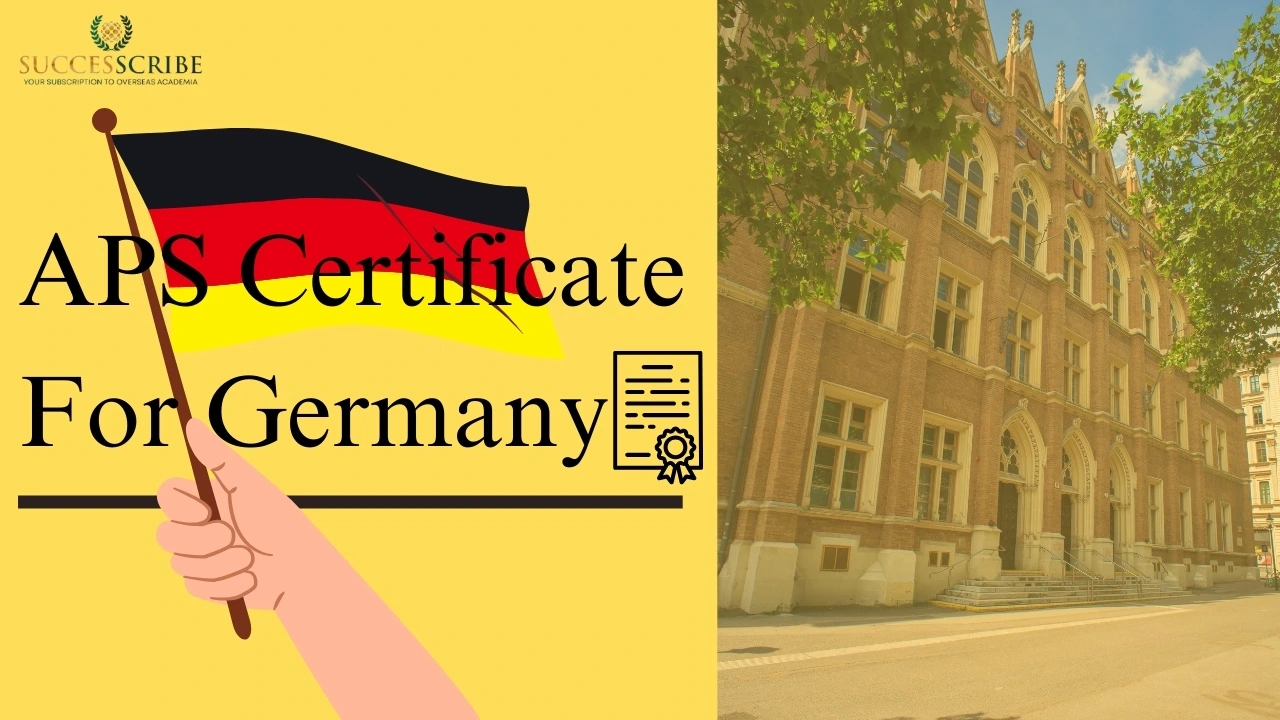Attending a student visa interview is an important step if you want to study in Germany. An interview for a German student visa is tough, and preparation is the prime factor that decides your fate. In this comprehensive article, common German student visa interview questions along with model answers will be discussed to make the entire process easy and confident for the candidates.
Overview of the German Student Visa Interview Process
First of all, it is relevant to explore how a visa interview generally goes and what it actually is. In principle, the German student visa interview is supposed to find out if you are genuinely a student willing to study in Germany and if you really meet all the requirements to get a visa. Such questions will be asked about many aspects-for instance.
- Your academic background and plans,
- Financial stability.
- Knowledge of the University/course being attended
- Motivation for coming to Germany
- Career prospects after graduation
- Language ability
- Personal/family background
Important Questions Asked in German Visa Interview Questions and Answer
Here are the frequently asked questions in German Visa Interviews and below are the tips to higher your chances to be selected.
1. Tell me something about yourself.
Model Answer: “My name is ——-, and I just finished my studies with a[ Degree Name] in Field from Your University. My studies so far have provided me with immense interest in the field of Your Field/Subject this is what motivated me to pursue a [Bachelor’s/Master’s/Ph.D.] in Germany. I am very active in project work in the field of [Your Field], which has further supported me in enhancing my technical and analytical skills. I have also enjoyed studying new languages and cultures and studying in a country with such an academic heritage as Germany enhances my passion.
Tips:
- Highlight your academic background and relevant experiences.
- Keep it short, but informative.
2. Why did you choose to study in Germany?
Model Answer: “I chose to study in Germany because it guarantees quality education. It has some of the best universities with world-class facilities for advanced research, and teaching methods work out in reality too. Besides, an opportunity to study in a country that is investing hugely in education and innovation was a perfect match with my academic and career goals. Moreover, many courses are taught in English, and that immediately drew me to Germany. Of course, the rich culture, the option to learn German, and the global standing of the country in industries related to my course sealed the deal.
Tips:
- Name Germany’s academic reputation, research opportunities, and specific benefits related to your field.
- Make it personal: link it to your goals.
3. Why did you choose this university and course?
Model Answer: I chose [University Name] because it is one of the leading universities in [Your Field], offering a specialized program in [Course Name]. The curriculum at this university focuses on both theoretical knowledge and practical applications, which aligns with my learning style. That impressed me a lot with the research opportunities of the university in the field of [some particular area] and the relationship of the university with the top companies for giving hands-on work experience. More importantly, I got in touch with several current students and alumni who spoke highly of the academic environment of the university and its support for international students.
Tips:
- Research the strengths of the university, its ranking, curriculum, faculty, and opportunities for research.
- Mention any particular aspects of the course which have motivated you to apply.
4. How do you plan on financing your studies in Germany?
Model Answer: “I have adequate funds for covering my studies and stay in Germany through a combination of [personal savings/scholarships/family support]. My family has been quite supportive, and they have provided me with an amount of — in a blocked account to cover the living expenses. Besides this, I do know that part-time work is possible in Germany, but I will be fully concentrated on my studies there.
Tips
- Please detail blocked accounts, scholarships, or parental support.
- Try to avoid work-related sources as the main support for your livelihood expenses, as that might raise some concern in the receiver’s mind.
5. What do you plan on doing after your study?
Model Answer: “After my [Bachelor’s/Master’s/Ph.D.] in [Your Field], I would like to acquire professional experience in Germany. For building a good career, the practical skills and global exposure that I will get by working in Germany will be really helpful. I am interested in working for specific companies or industries known for innovation and technology in my field. Later on, I will return to my country and contribute to the fields of with the expertise I have gained.”
Tips:
- Show good career prospects. Indicate if you are looking forward to going back home, this sounds like you are not planning to stay in Germany for a longer period of time.
6. What do you know about Germany’s system of education?
Model Answer: Germany has a well-regulated education system that is considered to be one of the world leaders in research, innovation, and pragmatism. Most public universities within Germany offer quality education at very low tuition fees, which enables international students to afford the fees. German universities have a great diversity of programs; most of them have English as the teaching language. Another strong point for the education system is that students are encouraged to pursue internships and industry interactions, which are crucial in terms of their career prospects. Academic rigor along with practical training sets the German education system apart from others.
Tips:
- Explain what the German education system is all about.
- Relate your knowledge to the reason or reasons for wanting to study in Germany.
7. What do you plan to do in case of visa rejection?
Answer: If my visa is rejected, I’ll first seek an explanation as to why it has been rejected. Then I’ll make the necessary improvements to address the raised concerns. My interest in studying in Germany is still very high, and I will try again once I address all issues.”
Service
Tips:
- Remain positive and mention how this development has increased your determination to apply again.
- Avoid overconfident or dismissive notes.
8. How do you intend to manage your accommodation in Germany?
Answer: Rest assured that I have actually looked for accommodation around the University of, and am in the process of finalizing either a student dormitory or a private apartment. I am fully aware of the importance of seeking out accommodation early and hence am liaising with the university’s housing office and other online portals to ensure I do not lack a place to reside upon arrival.
Tips:
- Show that you have considered practical aspects of living in Germany.
9. Why don’t you want to study in your home country?
Answer: Although my country does have institutions of high caliber, I still feel that studying in Germany will expose me to the international environment, advanced research facilities, and authorities of my field. Innovation being of immense concern for Germany complements perfectly the world-class higher education system that interests me academically as well as professionally. Moreover, the ability to relate with students and staff from diverse backgrounds will enrich my international outlook.
Tips:
- Highlight here the advantages of studying in Germany.
Other Important German Visa Interview Questions and Expectation from Interviewer
1. Why did you choose Germany amongst all other countries for studies?
- This question evaluates the candidate’s decision-making skills to opt for Germany as a study destination.
2. Could you kindly tell me the reason for choosing this university and this specific course?
- Interviewer wants to understand what brought you to the particular university and program at that university.
3. What are your plans after successfully completing your studies in Germany?
- They probably need to know whether you plan to go back to your home country or stay in Germany after your studies.
4. In what way is studying in Germany going to help your career?
- He needs to know how your education will be helpful in professional life.
5. Are you planning to work part-time while studying?
- They just want to assure that you are aware of the regulations concerning student employment in Germany and that your main priority is studies.
6. Where will you Stay in Germany ?
- Be prepared to Provide the details about your accommodation arrangements, weather it’s university housing or a rented apartment.
Tips for a Successful Interview

- Be Honest: While being interviewed, always speak the truth. If you do not know a piece of information, it is best to say simply “I don’t know” instead of making anything up.
- Prepare documents: have at hand all necessary documents like admission letters, financial proofs, health insurance, etc.
- Stay Cool yet Confident: Though the interview might be a bit stressful, try to keep your calm and show confidence. Remember, the consular officer does not try to intimidate you but instead assess your eligibility.
- Dress accordingly: First impressions are everything, so you need to come in wearing your formal or business casual to show professionalism.
- Avoid complex explanations or unclear responses: Answers should be concise and clearly understood.
- Interest: The interest in studying in Germany is manifested in the answers. Show that indeed one is prepared for an opportunity and ready to take advantage of it.
Conclusion
The German student visa interview is a very important part of the application procedure. Being fully prepared for the interview is one surefire way of making your chances bigger. Keep in mind to stay confident throughout, answer honestly to all questions, and indicate a clear purpose of coming to study in Germany. Familiarize yourself with the course, university, and country in advance. Your enthusiasm to study in Germany should be reflected during the time of the interview.
Related Post
Masters in Civil Engineering in Germany
Masters in Aerospace Engineering in Germany
Masters in Supply Chain Management
Masters in Automotive Engineering












